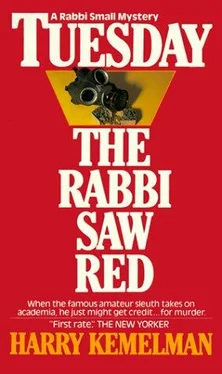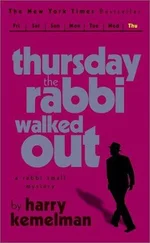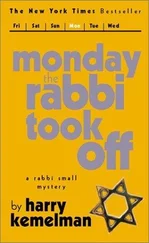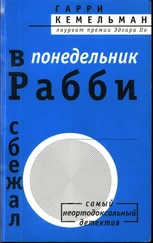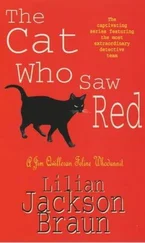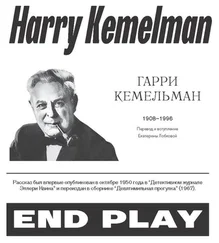"But if the college is for the faculty, and the student is here merely to mark time, why should you care what he does?"
Hendryx smiled."Actually, I don't. Not unless it kills the goose that laid the golden egg, and that what's been happening the last few years, the student sensed he was being had. Of course he'd known all along that what he was getting here wasn't worth what he was paying. I once figured out it costs him about ten dollars per lecture. God, my lectures aren't worth that, are yours? How smart does a student have to be to figure it out for himself? Still, he went along because he had to have the degree to get any sort of a job or train for any sort of profession. But then they rang in the war on him, and it struck him as a bit much: this degree we were giving him turned out to be just a ticket, sometimes one way, to Vietnam. So he rebelled."
"It also gave him a four-year moratorium from the war." observed the rabbi.
"Yes, it did, but that's human nature. Things have quieted down a lot in the last year or two, what with the change in the draft law and winding down the war, and the students have quieted down correspondingly. But they acquired the habit of protest, even violence, and that we can't have, there was a bombing here, you know."
"Yes. I read about it, of course, but that was last year."
"You never know." said Hendryx. "Take this very afternoon, the dean is seeing a committee on the Roger Fine business, maybe, probably, all they'll do is talk.
Nevertheless, she thought it advisable to call me and tell me to stand by."
"Because you're head of the English Department?"
"I'm only acting head. No, she wants me around in case there's trouble."
"Trouble?" The rabbi considered. "I’ve seen their poster on the Marble, of course. Professor Fine must be popular with the students for them to get up a petition for him."
Hendryx shrugged. "Maybe. On the other hand, students, some of them anyhow, will take any opportunity to pick a fight. I don't know how popular Roger Fine is, he's a good-looking fellow, so I suppose the girls go for him, that red hair—" He broke off. "Somehow I don't think of red hair in connection with your people. Do you suppose there was some hanky-panky between his mother or grandmother and some Russian or Polish soldier?"
"If so." said the rabbi quietly, "it was probably involuntary, during a pogrom. But actually there is a genetic strain of red hair among our people. King David was supposed to be red-haired."
"Really? Well anyway, a handsome young professor is always popular with the women. Even though he is a cripple."
"Would that make a difference?" the rabbi asked.
"Oh, I'm not saying he's so crippled he's repulsive, he walks with a cane and in a curious sort of way, that may even make him more attractive. Like a modern Lord Byron, he looks a little like him, come to think of it, with that lock of hair falling over his forehead." He chuckled. "A red-headed Byron, a minor physical disability sometimes can be quite an asset. Look at the Hathaway shirt guy, or your own General Moshe Dayan, for that matter."
"Why aren't they rehiring him?" said the rabbi, to get back to the point.
"Well, that's just it, they don't have to give any reason. May be Prex or the dean spotted him walking down the corridor with his fly open, or maybe even goosing one of the coeds. How would I know? It could be anything."
* * *
The rabbi went down the corridor toward the dean's office, but just as he reached it he saw her door close, he hesitated a moment, and then, remembering the pending committee meeting, decided not to disturb her.
On his way out of the empty building, he noticed the large English office on the first floor was lit, he looked in and saw Professor Roger Fine sitting alone at his desk, abstracted.
He called to him. "Can I give you a lift back to Barnard's Crossing?"
Startled. Fine looked up. "Oh hello, Rabbi. No, I've got my car here. Thanks just the same. I— I'm waiting for a phone call."
As he let himself out the front door, the rabbi wondered if the poor fellow really was waiting for a phone call, or whether he was waiting for the results of the committee meeting that could decide his fate.
* * *
Although it was well into autumn, the weather was mild and balmy, and David Small rode with the window down.
He was beginning to relax and enjoy the drive when he passed a couple of students sitting on the sidewalk and they reminded him of what had happened earlier in his classroom, he tried to put it out of his mind by concentrating on the approaching Sabbath when one should be at peace with the world, he pictured Miriam setting the table, laying out the twisted Sabbath loaves and the kiddush wine.
He visualized his arrival and her greeting:" Shabbat Shalom, David." and then the inevitable. "And how did it go today?"
And he would answer. "Well, it was— you see, the other day President Macomber went to visit the Boys' Reformatory as a member of some special citizen's committee, and..." It just wouldn't do, he could not minimize the fiasco. If he tried, she would sense that he was holding something back and it would be even worse.
Up ahead he saw a roadside cafeteria and pulled in, he badly wanted a cup of coffee.
"What's with the briefcase?" Abner asked Ekko as they met in front of the administration building. "What's in it?"
"Nothing." said Ekko. "but I figured it would look businesslike, after all, we're going like to a conference."
Abner looked at him doubtfully and then said: "Well, there won't be any conference if we don't get there. Let's go."
Upstairs Dean Hanbury pulled up some chairs in front of her desk and locked the office safe, adjusting the Venetian blind against the sun, she returned to her desk and began to knit placidly, waiting for the student delegation to arrive. Promptly at half-past two they entered. Judy Ballantine and Abner Selzer first, followed by Ekko, with his dispatch case, which he placed conspicuously on his lap.
The dean smiled graciously and continued to knit while the students shot glances at each other, uncertain how to begin, they felt somehow they had been put on the defensive even before the conference had begun.
Ekko cleared his throat. "Look here. Miss Hanbury—"
"Cool it. Ekko." Selzer ordered curtly, then he said. "We're here on what we consider important business, Dean Hanbury."
She inclined her head to denote agreement.
"Well, with you knitting, it kind of throws us off, if you see what I mean. It's like you don't consider this very important."
"Oh, I'm sorry, Mr. Selzer. It's a habit with me. I'm afraid I knit even at faculty meetings."
She placed her knitting in the plastic bag at her feet. "There now, is that better? What can I do for you?"
"Well, first we'd like to take up the matter of Professor Roger Fine," said Judy.
"You said, 'first.' Are there other things?"
"There are other things," said Selzer."Well, why don't you tell me what they are. Perhaps there are some on which we are in substantial agreement and we can settle those at once."
"We'd rather take them up one at a time. Miss Hanbury.," said Abner.
She shrugged.
"We'd like to begin with the matter of Roger Fine."
"Very well. But first let me ask you just what your position is in the matter. Has he asked you to represent him?"
"We are representing him."
"But has he requested that you do so? Because if he has, if you are acting as his official representative, then I think you should have a written authorization from him to that effect."
"We don't have any written authorization. Miss Hanbury," said Selzer easily, "but he knows of our interest in the matter. I guess everyone does since we've been circulating a petition on his behalf."
Читать дальше
